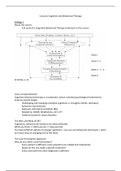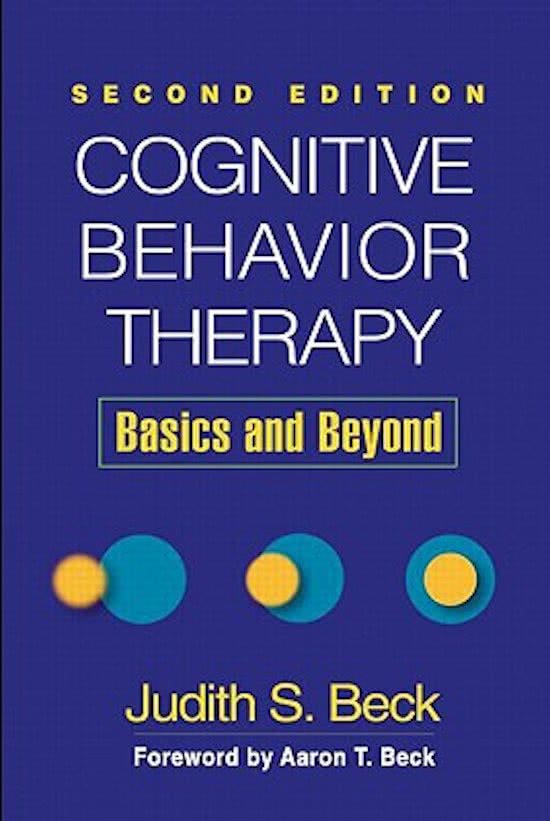College aantekeningen
Alle Hoorcolleges CBT (Cognitive Behavioural Therapy) UU Clinical Psychology
- Instelling
- Universiteit Utrecht (UU)
Alle hoorcolleges van het vak CBT (Cognitive behavioural Therapy) met afbeeldingen en theoretische en cognitieve modellen. Lecture Week 1 Elske Salemink Week 2 Lecture Elske Salemink Lecture week 4 Lisalotte Verspui Lecture week 5 Tonnie Staring Lecture week 6 Katharina Meyerbröker Lecture week 8...
[Meer zien]





